Last week NCIA was honored to bring together nearly 400 industry professionals and experts in the field of cannabis cultivation for our inaugural Cultivation Management Symposium. Held along the picturesque Seattle waterfront at the Bell Harbor International Conference Center, the event featured in-depth workshops, educational sessions, intimate tours of commercial cannabis cultivation and retail facilities, and an expo hall with more than 30 member businesses showcasing their work, plus plenty of opportunities for attendees to network with the gathered crowd of industry leaders.
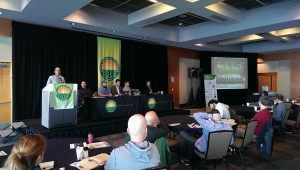
Day One started off with three hands-on workshops focusing on different aspects necessary to any successful cultivation operation. Kara Bradford of Viridian Staffing and Carole Richter of CRichter ~ HR Consulting hosted an intensive exploration of employment policies and human resource management skills in their “Employment Law 101” workshop. Kara and Kurt Badertscher of Otoké Horticulture, LLC discussed how to achieve financial success during a time of rapidly evolving laws in the “Cultivating Profits in a Regulated World” workshop. The final workshop brought together six champions of sustainability for the first time to introduce “Greening Corporate Cannabis: Sustainable Approaches to Commercial Cannabis Cultivation.” The session educated both investors and cultivators on the benefits and increased profits that come naturally from a reduced-carbon-footprint operation.
The day concluded with small group tours of local member businesses Solstice, Northwest Patience Resource Center (NWPRC) and New Leaf Enterprises, giving attendees a chance to see a commercial cannabis cultivation facility as well as responsible retail practices first-hand.
Day Two kicked off with keynote presentations from Jan Carlos Byl and Adam Dunn of MedCanna Consulting detailing how cultivation culture has evolved over the past few decades and how the coming end of prohibition will affect it further. Attendees then enjoyed an intimate fireside chat between Alex Cooley of Solstice and Jonathan Valdman of Forever Flowering Greenhouses on incorporating sustainability into commercial cannabis cultivation operations. Along with providing an overview of the Greening Corporate Cannabis campaign, they also stressed the importance of thinking beyond profits, incorporating practices which promote the health of people and the planet, and how small start ups can manage the costs of incorporating more sustainable procedures into their business.
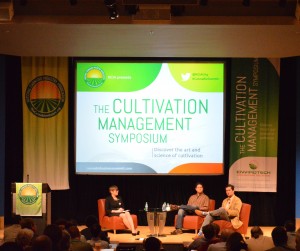 Following lunch, attendees filtered into general sessions in two separate tracks. The first track, “The Science of Cultivation,” focused on the foundation every successful cultivator should have under his or her belt before diving into the field. The second, entitled “Specialized Cultivation Methods & Techniques,” delved deeper into more complex approaches to cultivation through soilless mediums and organic means, as well as delivering nutrients through unique methods.
Following lunch, attendees filtered into general sessions in two separate tracks. The first track, “The Science of Cultivation,” focused on the foundation every successful cultivator should have under his or her belt before diving into the field. The second, entitled “Specialized Cultivation Methods & Techniques,” delved deeper into more complex approaches to cultivation through soilless mediums and organic means, as well as delivering nutrients through unique methods.
Day Two culminated with two keynote presentations by Phillip Hague of MiNDFUL, granting attendees a start-to-finish look at “beyond organic” methods, and Jennifer Martin of Bulbulyan Consulting Group, discussing the nuances of clone propagation on a commercial scale. The evening concluded with a St. Patrick’s Day-themed networking reception sponsored by Solstice and partners and featuring musical stylings by Erothyme. Green was certainly the theme for the evening, as attendees enjoyed local, sustainably sourced refreshments of all varieties while enjoying soothing sounds and networking with key industry players.
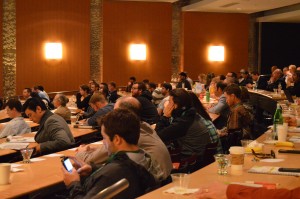 Our final day of programming opened with a keynote from Amy Poinsett of MJ Freeway, encouraging the adoption of technology to aid in every facet of cultivation-based work. Whether it be collecting and analyzing data to inform future decisions or utilizing tracking technology to track every gram, technology when used correctly can only be a benefit to your operation. Day Three also featured two more tracks of specialized sessions in order to offer attendees a well-rounded overview of topics. Track III, “The Art of Horticulture.” focused on specialized techniques for designing gardens in a warehouse setting, ensuring quality control throughout the packaging process, effectively utilizing the advantages of outdoor and greenhouse cultivation methods, and tips for personal cultivators who might not be producing on a large scale. Track IV, “Maximizing Operational Efficiency,” highlighted numerous ways to make operations more efficient through development of the workforce, properly securing facilities, proper disposal of waste, and getting up to speed on advancements in lighting and climate control technology.
Our final day of programming opened with a keynote from Amy Poinsett of MJ Freeway, encouraging the adoption of technology to aid in every facet of cultivation-based work. Whether it be collecting and analyzing data to inform future decisions or utilizing tracking technology to track every gram, technology when used correctly can only be a benefit to your operation. Day Three also featured two more tracks of specialized sessions in order to offer attendees a well-rounded overview of topics. Track III, “The Art of Horticulture.” focused on specialized techniques for designing gardens in a warehouse setting, ensuring quality control throughout the packaging process, effectively utilizing the advantages of outdoor and greenhouse cultivation methods, and tips for personal cultivators who might not be producing on a large scale. Track IV, “Maximizing Operational Efficiency,” highlighted numerous ways to make operations more efficient through development of the workforce, properly securing facilities, proper disposal of waste, and getting up to speed on advancements in lighting and climate control technology.
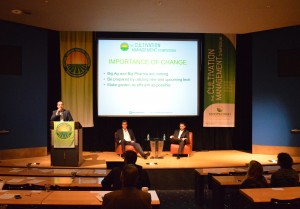 Jay Czarkowski of Canna Advisors and Stephen Keen of Surna closed things out with a look at disruptive technologies and their impact on the cannabis industry. Their talk specifically highlighted recent advancements in lighting and greenhouse technology which will offer a competitive advantage to counter “Big Agriculture” at whatever point they begin to enter the cannabis space.
Jay Czarkowski of Canna Advisors and Stephen Keen of Surna closed things out with a look at disruptive technologies and their impact on the cannabis industry. Their talk specifically highlighted recent advancements in lighting and greenhouse technology which will offer a competitive advantage to counter “Big Agriculture” at whatever point they begin to enter the cannabis space.
We here at NCIA are invigorated and grateful to everyone who made our first multi-day cultivation event a success. Throughout the event, cultivation experts from across the globe shared their knowledge and urged the necessity of living up to the ideals of those who made this industry possible in the first place. Prohibition created most of the pressing issues facing the cultivation field of our industry. As the walls of prohibition continue to crumble, we must let our unsustainable methods of cultivation fall by the wayside as well. We can set the example as a new industry that not only cares about profits, but also about the people involved and the planet which is affected by our work.
A huge thanks to all our attendees, speakers, and sponsors who contributed to making this event so powerful and valuable. We are excited to expand our programming further and bring this event to other states with an established industry next year, so stay tuned!

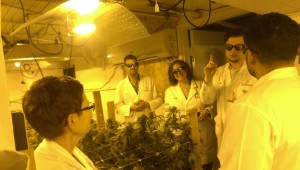
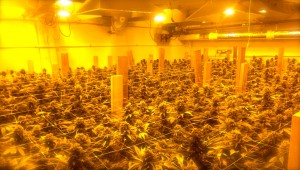

Follow NCIA
Newsletter
Facebook
Twitter
LinkedIn
Instagram
–